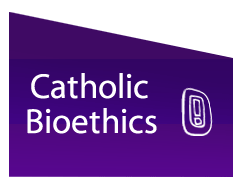Catholic bioethicists have warmly welcome news of a recent breakthrough in the treatment of heart disease using adult stem cells. Scientists led by Sir Magdi Yacoub have grown part of a human heart from adult stem cells in a breakthrough that offers hope for millions of cardiac patients.
The news has been welcomed by the Catholic Bishops Joint Bioethics Committee - the group of experts form the Catholic Church in Britain and Ireland charged with monitoring bioethical issues.
Fr Paul Murray, secretary of the Joint Bio-Ethics Committee said: "Sir Magdi and his team generated the heart tissue from stem cells found in the bone marrow. The technique is ethical because the stem cells were taken from the patient's own bone marrow rather than from an embryo in the first few days of life.
"Because they are derived from the patient's own bone marrow, the production of these stem cells does not involve the destruction of embryos involved in some other forms of research. This aspect of the latest news is most significant and welcome. As yet it has not received the attention it deserves.
"This development vindicates the consistently held position of the Catholic Bishops’ Joint Bioethics Committee. Many experts in the field have long maintained that the greatest potential for actual cures lay with adult rather than embryonic stem cells.
"In view of this and many other concrete results using adult stem cells, let us leave behind us once and for all the fruitless and destructive research on embryonic stem cells.
|










